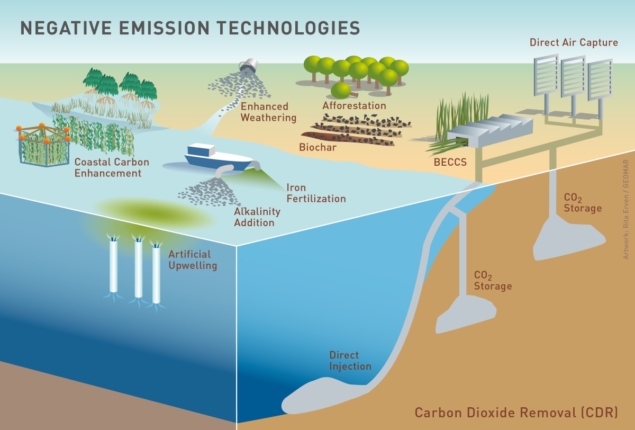 Changing weather patterns, retreating glaciers, stronger storms, longer droughts -- these are just a few signs that our climate is changing rapidly.
Changing weather patterns, retreating glaciers, stronger storms, longer droughts -- these are just a few signs that our climate is changing rapidly.
The Paris Climate Treaty has been adopted by 200 countries to reduce the emissions of greenhouse gases that are the culprit behind climate change. The goal of the treaty is to limit global temperature rise to within 2 degrees C.
Recently, lawmakers in New Zealand signed the Zero Carbon Bill, which lays out a path for the country to reduce its carbon emissions to zero by 2050.
What Is Net Zero?
Net Zero is the balance between the amounts of greenhouse gases a country releases into the atmosphere and how much is removed from the atmosphere.
A reasonable way to achieve net zero is to divide the goal into two parts. To reduce emissions, countries can gradually adapt their economies to be less carbon dependent. This can be done by developing renewable energy, improving transportation and food production, stopping deforestation and restoring lands, reducing food wastage, and consuming less meat.
Countries can then address remaining emissions with carbon removal, a process that removes greenhouse gases directly from the atmosphere. This can be done by planting more trees and developing technologies that capture and store carbon (known as mineralization).
What is New Zealand's Plan?
 New Zealand’s Zero Carbon Bill aims to reduce fossil fuel usage and replace it with renewable energy sources. The government has also focused on promoting electric vehicles, public transportation, biking, and walking. Additionally, New Zealand is committed to planting 1 billion trees by 2028.
New Zealand’s Zero Carbon Bill aims to reduce fossil fuel usage and replace it with renewable energy sources. The government has also focused on promoting electric vehicles, public transportation, biking, and walking. Additionally, New Zealand is committed to planting 1 billion trees by 2028.
The country wants to include agriculture in its climate solution. The government will tax farmers who do not decrease their carbon emissions by 2022. Currently, agriculture in New Zealand accounts for 48% of its greenhouse gas emissions.
Methane is a greenhouse gas produced by the decomposition of organic matter from crops and livestock such as sheep and cattle -- known as biogenic methane. New Zealand will reduce biogenic emissions by 10% before 2030 and between 24% to 47% before 2050. Here, the country is being criticized for not doing enough as methane is a much stronger greenhouse gas, even though it does not stay in the atmosphere as long as carbon-di-oxide.
New Zealand is also investing in preserving environments that absorb carbon from the atmosphere, also known as carbon sinks.
Sixty countries have already committed to net zero, yet they only make up 11% of global emissions. We need countries with the highest emissions -- China, U.S, and India to change their policies as well and convince our leaders that our planet cannot survive if we don’t take action.
Sources: NPR, Guardian. NYTimes. Greenbiz, wri.org









